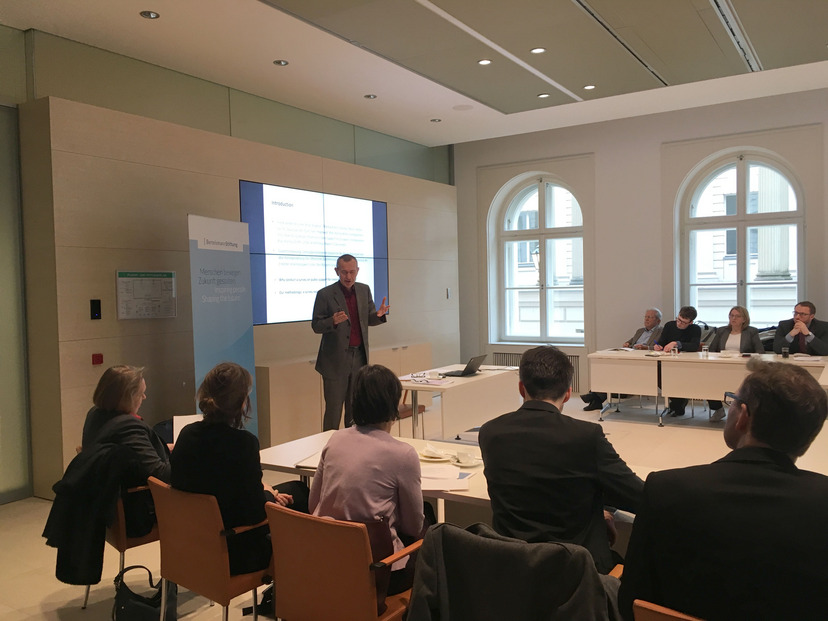Unemployment reinsurance can serve as an "automatic stabilizer" in an economy: In times of crisis, for example, it can stabilize an economy "against the trend" by increasing expenditure (e.g., on unemployment). While social security funds assume this role in many member states, there is no such instrument at the European level. This could have a stabilising effect in the "asymmetric" crises common to the eurozone. A study published in December 2018 by Foundations’s Europe Programme was very well received by policy makers, academia and the public as it empirically corroborates the merits of reinsurance for a stable eurozone. But what do EU citizens think of such, allegedly technical, reform proposals?
This question was the subject of an event organised by the Future of Europe Programme entitled "A European unemployment re-insurance – What do European citizens really think?”. Christian Kastrop, Director of the Future of Europe Programme, welcomed the 35 guests from policymaking, think tanks and industry and then passed on to our CEO Aart de Geus. The Bertelsmann Stiftung had been working on the idea of a European unemployment insurance scheme for several years. The public discussion shifted, however, when Finance Minister Olaf Scholz proposed to create a reinsurance for the Eurozone in autumn 2018. The instrument is particularly attractive because it can lead to comparatively low transfers, but more stabilization – which was also one of the key findings of the study undertaken by the Programme Europe's Future on re-insurance.








